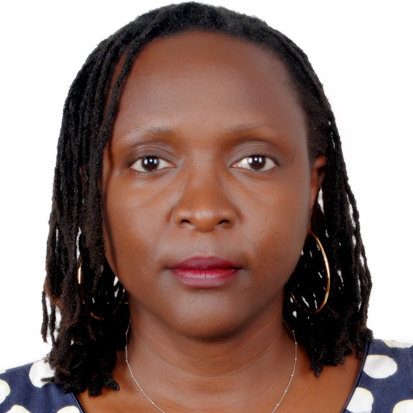CONTRIBUTORS

Lydia Namatende-Sakwa
Associate Research Scientist

Davis Muli Musyoki
Communications Officer
In 2020, Uganda embarked on a bold education reform, introducing the Competence-Based Curriculum (CBC) for lower secondary schools. Designed to move learners beyond rote memorization to mastering critical 21st-century skills—like problem-solving, collaboration, and digital literacy—the CBC promises a more relevant and empowering education. However, recent teacher insights reveal that where a school sits on the affluence scale significantly shapes how effectively this promise is delivered.
The Affluence Advantage
Teachers in well-resourced schools speak positively about the CBC. They describe a culture of collaboration where lesson planning is done in teams, integrating multiple perspectives to enrich classroom delivery. These schools often provide the digital tools—like projectors and internet access—necessary for the CBC’s learner-centered and ICT-driven methodologies.
In such schools, students are encouraged to participate in debates, research projects, and peer assessments. This builds confidence, enhances communication skills, and helps them take ownership of their learning. Teachers, in turn, find their roles shifting from lecturers to facilitators—a transformation that many welcome.
As one teacher from an affluent urban school put it, “Our lessons are definitely richer because we plan together, use PowerPoint, and learn from our students too.”
Struggles in Under-Resourced Schools
In stark contrast, teachers in less affluent schools face uphill battles. Limited infrastructure means that hands-on learning, a cornerstone of the CBC, is often replaced by old, lecture-based methods. With no access to functional science labs, computers, or reliable electricity, implementing CBC becomes a theoretical exercise rather than a practical reality.
Work overload is another major issue. Teachers must prepare elaborate lesson plans and document each student’s progress through continuous assessment, often for classrooms of 80 to 100 learners, with little or no support. And when textbooks are shared among dozens of students, group discussions and independent research become nearly impossible.
One rural teacher candidly shared, “We try our best, but we lack everything from textbooks to internet. We end up teaching the way we used to, not because we want to, but because we must.”
Curriculum Equity Requires More Than Policy
The gap in implementation experiences between the haves and have-nots, is a powerful reminder that equity must be more than a policy goal; it must be operationalized.
Uniform policies will not fix structural inequalities. For example, CBC mandates active learning and ICT use across all schools, but what happens when only affluent schools have the tools to do so? This deepens existing disparities and risks leaving the most vulnerable learners behind.
What Needs to Change
To truly democratize the benefits of the CBC, policy must target resourcing where it is most needed. This includes:
- Providing digital and learning materials to under-resourced schools.
- Investing in teacher training, especially around digital literacy and assessment.
- Revisiting class sizes and encouraging co-teaching models where possible.
- Orienting parents and students to new assessment approaches to ease resistance.
Affluence should not be the deciding factor in a child’s ability to thrive under the new curriculum. Uganda’s CBC reform holds great potential—but it will only succeed if implementation is guided by equity, not uniformity.
This article was also co-authored by Kellen Busingye.
Kellen Busingye is an Assistant Lecturer in the Department of Curriculum, Teaching and Media at Kyambogo University, Uganda, and a teacher educator dedicated to strengthening teacher preparation for the Competence-Based Curriculum. She is currently pursuing a PhD in Educational Technology, with her research focusing on how digital innovations can be integrated into teacher education to improve pedagogy and support inclusive, learner-centered approaches in low-resource settings.